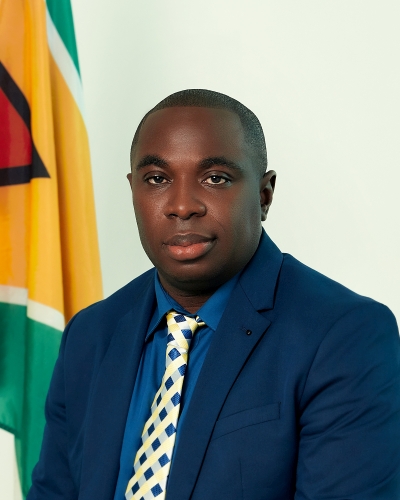Dear Editor,
President Irfaan Ali’s dismissive and crude response to journalists’ inquiries regarding the investigation into the tragic death of Adrianna Younge evoked a poignant memory from my stint in 2023 as Coordinator of the Youth Cluster of the Rights of the Child Commission. It served as a stark reminder that this current PPP administration exhibits a troubling disregard for the concerns of our youth. Whenever the administration is unable to maintain control over a process or narrative, its instinct is not collaboration but condescension.
It is worth noting that the last cohort of Commissioners for the Rights of the Child Commission was appointed in May 2009. Since then, successive governments, both the PPP and the APNU+AFC have failed to reconstitute the Commission, thereby neglecting a vital mechanism for safeguarding the rights of our children. While the current administration initiated the process in 2023 to appoint a new cohort of commissioners, the integrity of this effort was severely undermined.
The Rights of the Child Commission is mandated to consist of fifteen (15) voting members drawn from a broad cross-section of society, including youth organizations, women’s organizations, professional bodies, religious entities, private sector stakeholders, and other civil society groups. In addition, three (3) ex-officio members are nominated by the other constitutional rights commissions: the Women & Gender Equality Commission, the Indigenous Peoples’ Commission, and the Ethnic Relations Commission.
During my time as Coordinator of the Youth Cluster, I witnessed firsthand several attempts by government operatives masquerading as representatives of youth organizations to hijack the nomination process. When their efforts proved unsuccessful, the Chairperson of the Parliamentary Committee on Appointments, Minister Gail Teixeira, intervened inappropriately. Through a clerk of the committee, she informed me that the Committee would assume control of the nomination process due to unspecified complaints, a tactic reminiscent of those used to orchestrate partisan appointments to the Ethnic Relations Commission.
I firmly rejected this overreach, requesting that any such directive be submitted in writing, along with the complaints referenced. I also made it unequivocally clear that the Committee on Appointments has no authority to usurp, interfere with, or influence the outcome of a process governed by constitutional rules. Despite several further attempts to obstruct the democratic selection of youth nominees, the Youth Cluster concluded its process in accordance with all guidelines and within the established deadlines. The final report and election results were duly submitted. Both I and another youth leader were nominated as representatives for the Commission.
Yet, to date, Minister Teixeira has failed to convene a meeting of the Committee on Appointments to finalize the process, by laying the cluster reports before its members and then submitting list of nominees to Parliament to be voted upon paving the way for the official appointment of new commissioners. This inaction has rendered the Rights of the Child Commission dormant and non-functional, at a time when the need for such an institution is dire.
When a government sidelines legitimate civil society processes simply because it cannot manipulate outcomes in its favour, the conclusion is inescapable: it has little regard for constitutional democracy and even less for human rights. President Ali’s recent response, though disheartening, did not surprise me. It merely reaffirmed the disturbing pattern of authoritarianism and disdain for accountability that has come to define this administration.
Regards,
Clayon Halley











